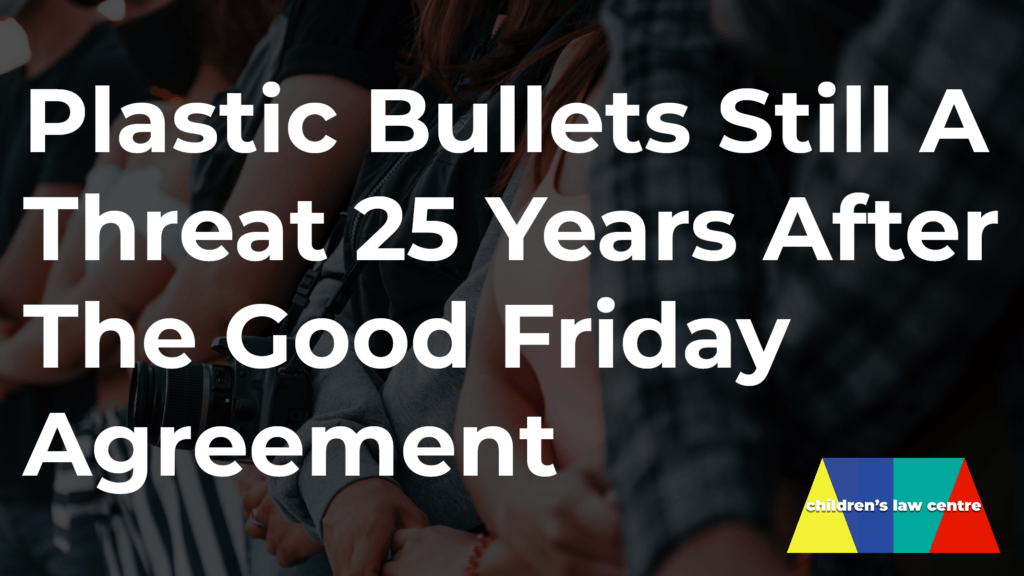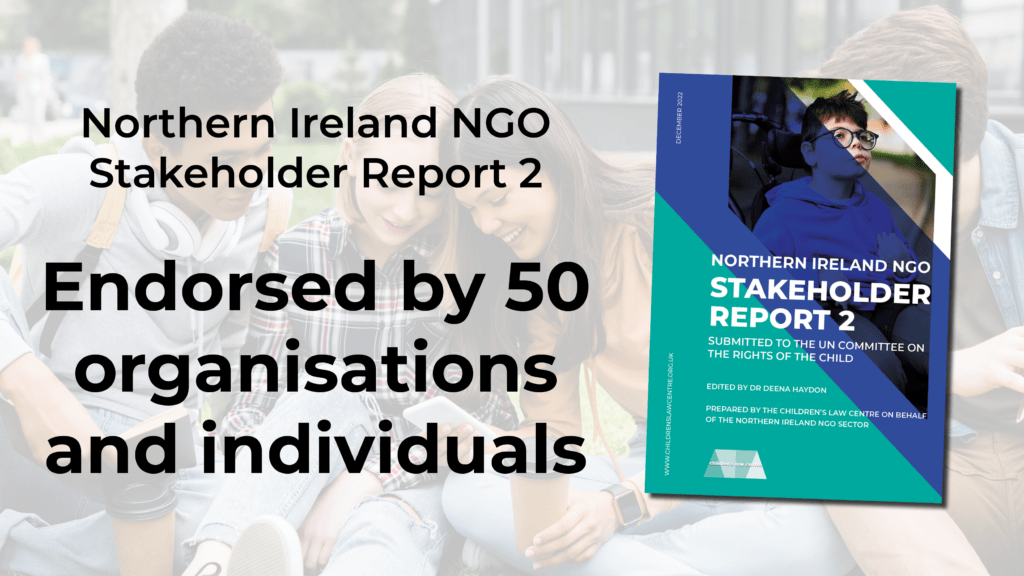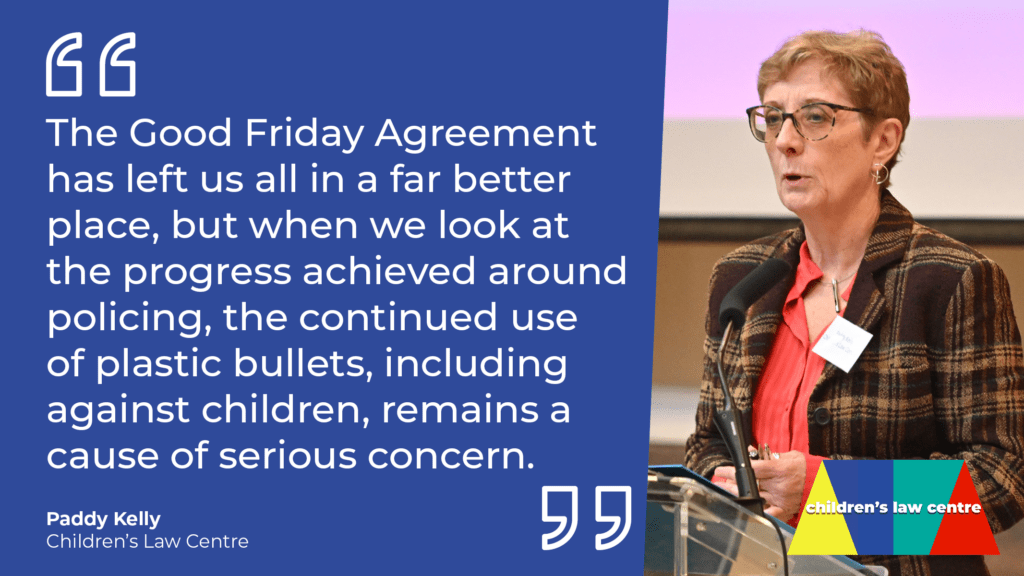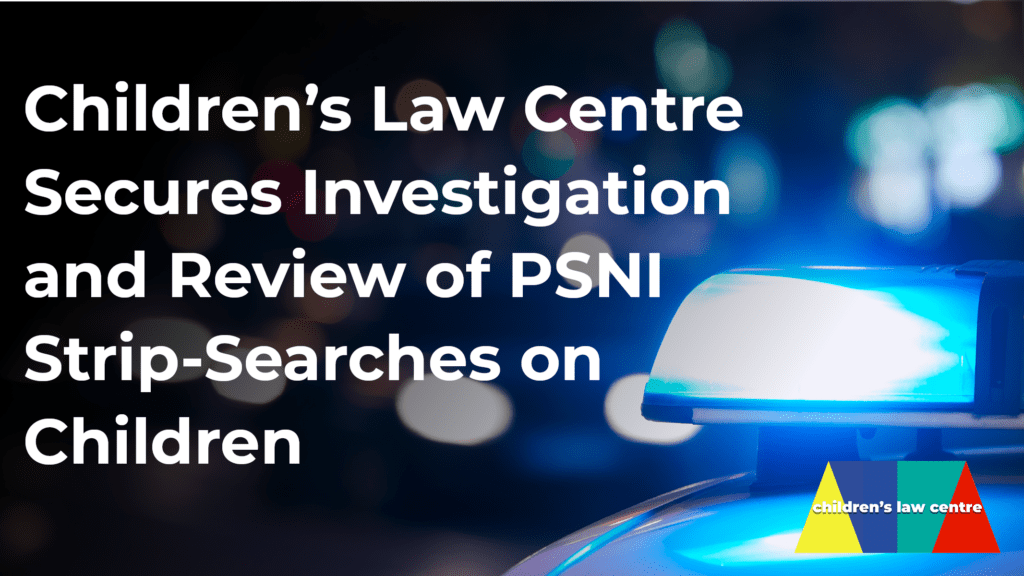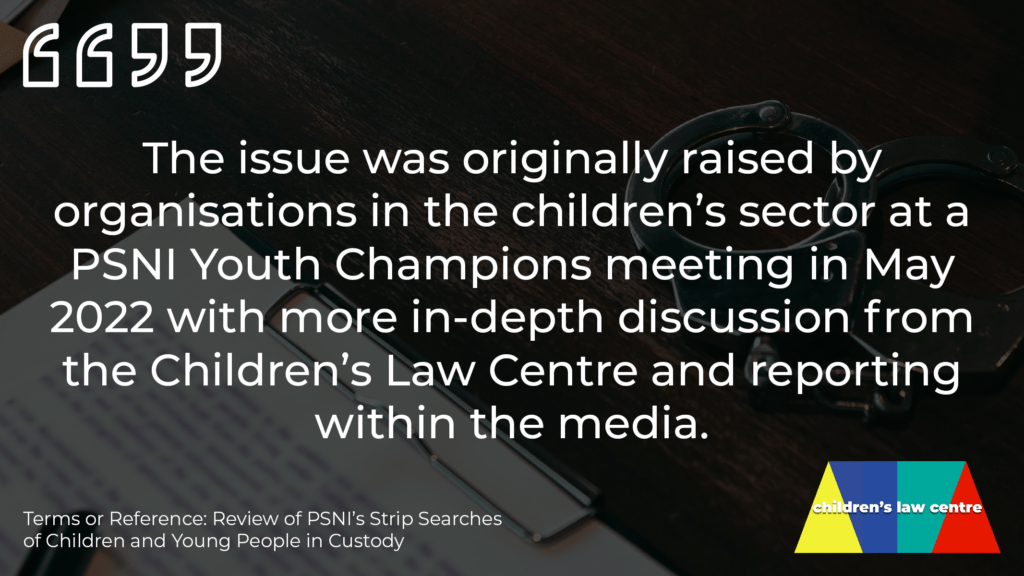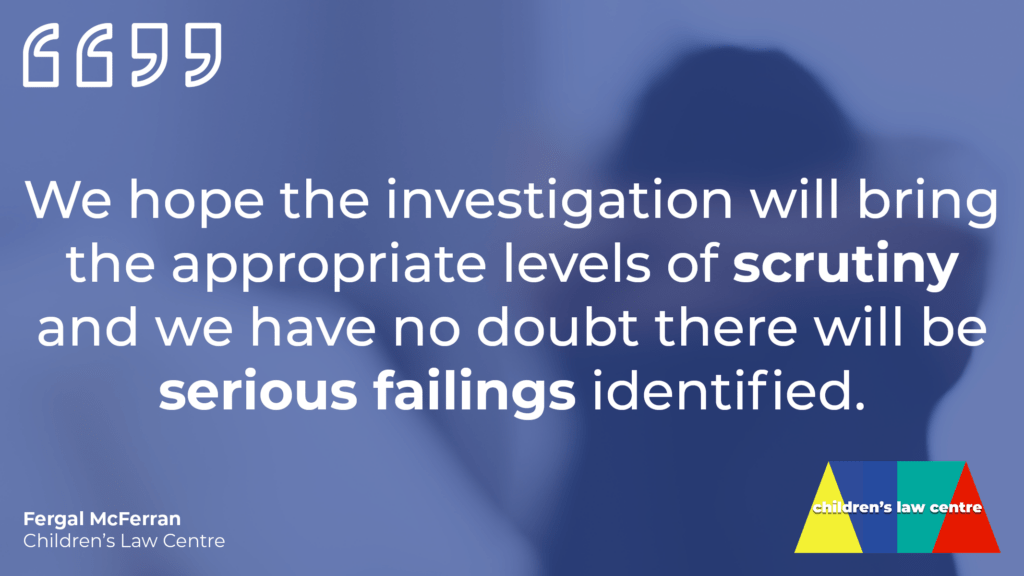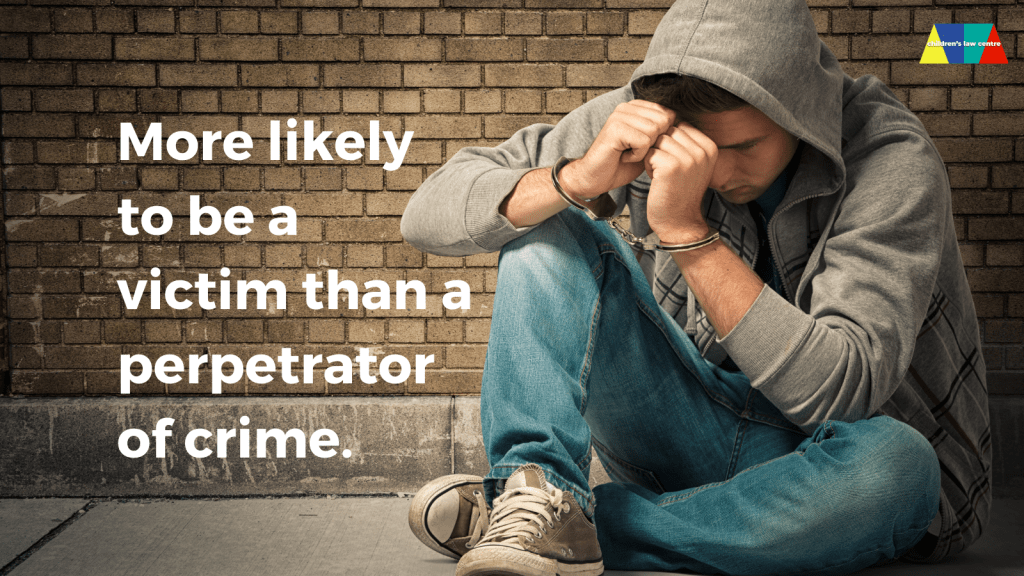02 July 2024
The Northern Ireland Policing Board has today published its ‘5 Year Human Rights Review’. The initial summary report demonstrates a need to properly embed human rights compliance within frontline policing. It also highlights that, of the 119 previous recommendations made by the Board over the last five years, only 24 have been implemented by the PSNI.
A number of the key issues mentioned in the report relate to work that the Children’s Law Centre has consistently raised in relation to the policing of children and young people. These include:
- The misuse and abuse of stop and search powers
- Strip searching of children and young people in custody
- Uses of force, including the use of spit hoods on children and young people
Speaking after the report was published, Fergal McFerran, Policy and Public Affairs Manager at the Children’s Law Centre, commented: “The Children’s Law Centre has consistently raised our concerns in relation to a number of areas of policing policy and practice. These have included serious breaches of human rights standards that have been criticised by the United Nations Committee on the Rights of the Child.
“While the summary report claims that the PSNI is human rights aware, the Children’s Law Centre agree with its additional assertion that the PSNI has some distance to go to be truly human rights compliant. That must include a better record in implementing recommendations from the Policing Board, as well as implementing recommendations from international human rights experts.”

Mr McFerran continued: “We welcome that a number of the issues raised by CLC over the past years have been referenced in the summary report. This includes the use of spit hoods, strip searches of children in custody and stop and search.
It is particularly encouraging to see that the ‘Human Rights Review of Children and Young People: Strip Searching in Police Custody’ is recognised as having a significant impact on policing practice. The Children’s Law Centre fought hard to secure this review and will continue to scrutinise the PSNI on the issue.
“However, it is disappointing that previous Board recommendations around spit hoods were ignored. The misuse and abuse of stop and search powers also continues, with the report recognising issues around the low outcome rates and the damaging impact on community relations, as well as the impact on trust in the police by children and young people. The PSNI should also finally get to grips with their duty to record and report community background data.
“Children and young people must be seen as rights holders and the PSNI should act to deliver a policing approach which truly respects and fulfils the human rights of our young people.”
The NI Policing Board’s report can be found at https://www.nipolicingboard.org.uk/publication/human-rights-5-year-review


